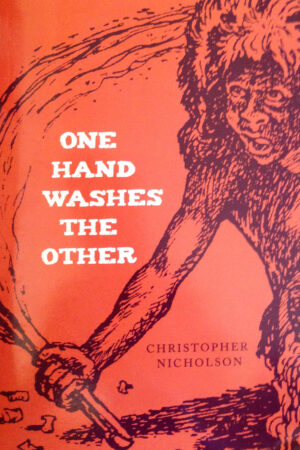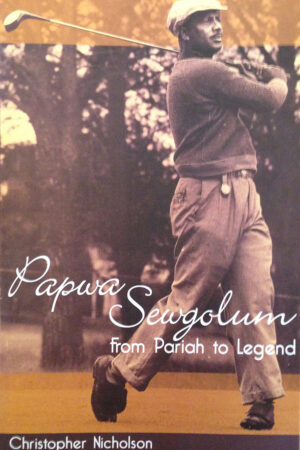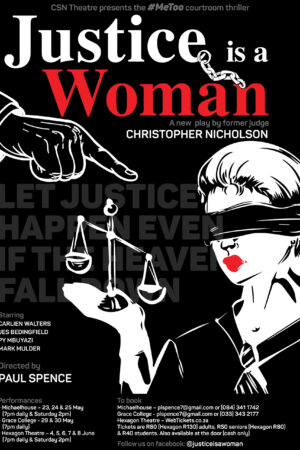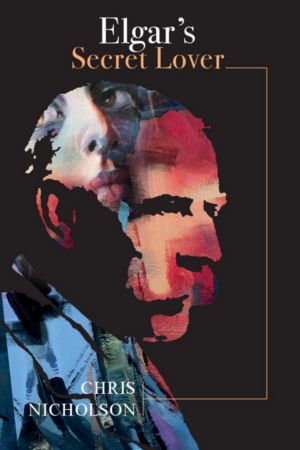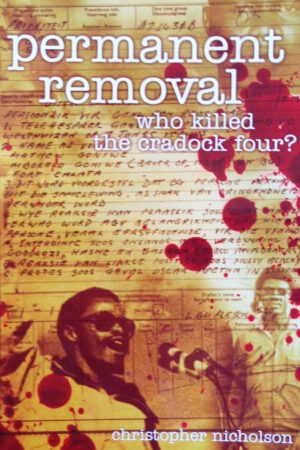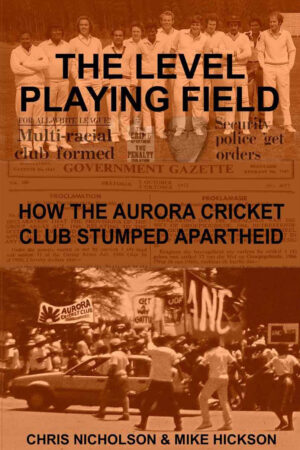Richard and Adolf
Please note: This is a downloadable PDF Ebook and not a physical book.
Did Richard Wagner incite Adolf Hitler to commit the Holocaust?
Is there such a thing as Nazi Music, Third Reich Music or proto-nazi or otherwise anti-Semitic music and art?
Can Music be Evil?
Why did Adolf Hitler idolize Richard Wagner?
Was Richard Wagner, the great composer, also Richard Wagner, the proto-Nazi?
These and other issues are treated in a scholarly way in Richard and Adolf; Did Richard Wagner incite Adolf Hitler to commit the Holocaust?
The music of composer Richard Wagner is banned in Israel, as he is regarded as a precursor of the Nazi ideology. In Richard and Adolf, Nicholson explores the anti-Semitic elements of Wagner’s polemical works and his music, and the immense influence this had on the man who was to become Germany’s Fuhrer. Reference is also made to the texts of the major operas, reckoned by many to be the greatest works of art of all time.
Biographers have often avoided delving into the uglier elements of both of the subjects’ personalities. Without seeking sensationalism, this book does not shrink from exploring their seedier side, including their sexual dalliances and perversions, in its quest to understand the full range of factors that led to Hitler’s pursuit of the Holocaust.
Please note: This is a downloadable PDF Ebook and not a physical book.
R100,00
Description
‘This is Nicholson’s MASTERPIECE … an outstanding piece of work.’
Gillian van der Heijden Department of Classical Civilizations at the University of KwaZulu-Natal.
‘It is a most scholarly, lucidly written account, capturing very starkly and eruditely the awful ambiguity of Wagner – one of the greatest creative geniuses who ever lived and at the same time a thoroughly vile human being whose poisonous prejudices unquestioningly provided Hitler with a lasting source of inspiration. I learned many interesting things – Herman Levi was evidently not as abject a self- hating Jew as I thought and it was an eye-opener to read that King Ludwig not only did not share Wagner’s anti-Semitism but actually upbraided him for it. All the references to Mahler and his pathetic hero-worship of Wagner were most interesting. Wagner’s story is a frightening one, and ultimately tragic – great art should been ennobling, and usually is, but that shadow of the swastika will always lie over even his greatest works. It is a very thorough and clear appraisal.’
David Saks senior researcher at the Jewish Board of Deputies in Johannesburg
It is a ‘master work… Rarely had I read a book which was so thoroughly researched… Rarely have I read such wonderful English. And rarely has an author produced such a powerful, incontrovertible case.’
Harry Hurwitz, the President of the Menachem Begin Heritage Center, Jerusalem April 2007
‘I am very much impressed with this gigantic work… The Third Reich has attracted the most eminent academic historians, one does not venture amongst those heavy weights without serious thought… I was enthralled from the first page. The depiction of Wagner’s philosophy and thinking was a revelation and his assessment of Hitler exceeds that. This book reveals Hitler’s obsession with Wagner and the darkest depths of that obsession. I am still staggered by the achievement of this book which is a gigantic work. The writing which succeeds greatly with its Nicholson humour, has given me a different view of the most evil Hitler. His madness is laid bare. The identification and descriptions of his obsessions (Wagner and architecture) together with his horrific perversions (anti-Semitism and sex) both establish and explain his complex nature in a readable and understandable manner.’
Martin Oosthuizen, 25 March 2007
An ‘interesting and meticulous work…It has long been known that Richard Wagner’s operas were influential in Nazi ideology and thus the name Wagner has become controversial to this day. However it has been some time since the philosophies and ideologies underpinning Nazism have been explored in depth, especially in relation to Hitler and Wagner. This thoroughly enlightening and well researched text fills a gap in this literature and provides a number of important and interesting contributions and insights into the history of Nazi ideology and its Wagnerian influence.
What is truly fascinating about this book is the way in which it paints a picture of a family tree of hate for Nazi ideology stretching back to Wagner, explaining in detail the power that Wagner’s operas and racial manifestos cast over a generation or more. The cast of characters is grand, from Thomas Mann to Renoir and Nietzsche. The period 1850-1950 is one of the most fascinating in showing the underpinnings of modernity and modern philosophy and this author is brilliantly familiar with the period.’
Seth J. Frantzman (Jerusalem, Israel) gave it five out of five stars, April 22, 2007.
‘This is a very valuable book. Music lovers have long argued about the merits of Wagner’s operas, their artistic versus contextual values and liabilities. Many have stated that the fact, that Hitler liked this composer’s music and that they actually played them in the death camps, should not be used as an argument against Wagner, long dead at the time, or his music. Mr. Nicholson rightly points out the uglier sides of Richard Wagner’s psyche, and the fact that he actually developed many of the theories about the “final solution of the Jewish question”, namely mass murder. Adolf Hitler enthusiastically put his theories into practice. The book should be a compulsory read for musicologists.’
Andrew Sanders (Toronto, Canada) gave it five out of five stars in a review The ugliness of Richard Wagner, April 12, 2007.
‘Nicholson’s insight into Wagner’s music is profound. He has studied Hitler in the minutest and ugliest detail. His bibliography is vast. He writes expressively and well. Nicholson’s depiction of Wagner’s philosophy and thinking is a revelation and his assessment of Hitler exceeds that. The book reveals Hitler’s obsession with Wagner and the darkest depths of that obsession. His madness is laid bare. The identification and descriptions of his obsessions (Wagner and architecture) together with his horrific perversions (anti-Semitism and sex) both establish and explain his complex nature in a readable and understandable manner…
The extent to which Richard Wagner or his descendants can be blamed for any of the horrors of the Third Reich is assessed and explored in great depth. … As an experienced and skilled civil judge, with a background in human rights work, he researches and identifies important evidence and makes a finding on the facts before him. It is certainly rare, if not unique, for a writer to have those qualifications. The footnotes verify every statement and the selection, captions and placement of photographs enhance the book.’
Professor Reuben Musiker, Professor Emeritus of Librarianship and Bibliography University of Witwatersrand, Johannesburg, South Africa in Jewish AffairsChanukah 2007 edition.
The author ‘records in the minutest detail the manifestations of Wagner’s and Hitler’s obsessions, and the impact they had on European Jewry. He postulates that Wagners anti-Semitism as demonstrated in his major musical works provided the launch pad for Hitler’s excesses…The book is beautifully produced. It is well bound and the pages are fine quality paper that will accommodate many readings… The work is catalogued as a Holocaust book, but it is more than that. It is a detailed expose of how two disturbed people are hypnotized by an 800 year old poem, and use that as a justification for the calculated murder of 5 million innocent people. That is not to mention the millions that died as a result of their dementia. Nicholson’s book is a scholarly tome. All facts are annotated, and his bibliography runs to 7 pages.
I heartily recommend this book to anyone who wants a greater understanding of why someone would want to legislate to harass, hound and murder innocent families. This is an important work particularly for a generation to whom World War II was something someone mentioned during a history lesson. Everyone should read this book to remind themselves of the cataclysmic dangers of Nationalism.’

